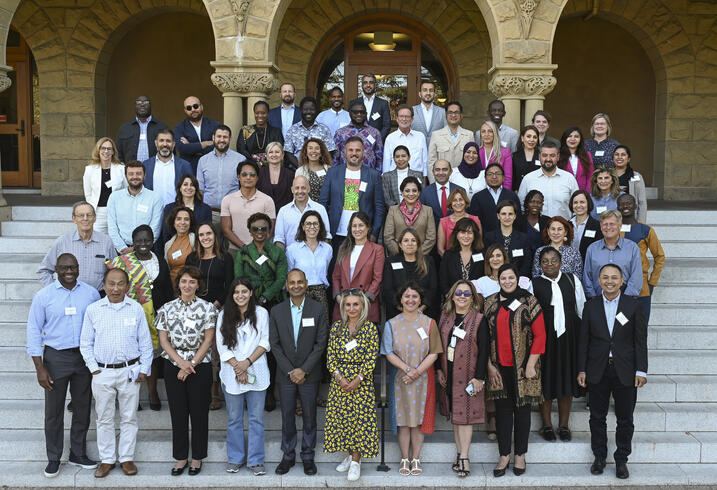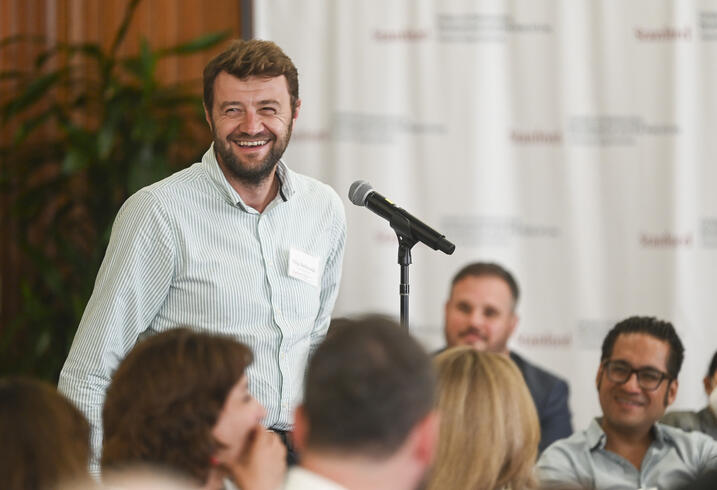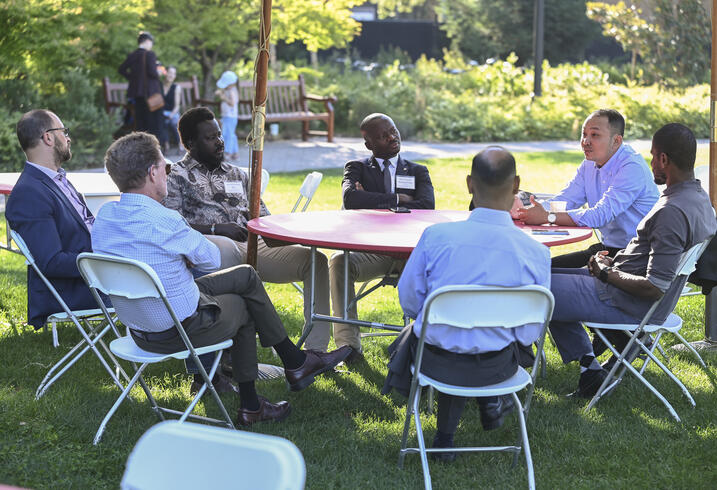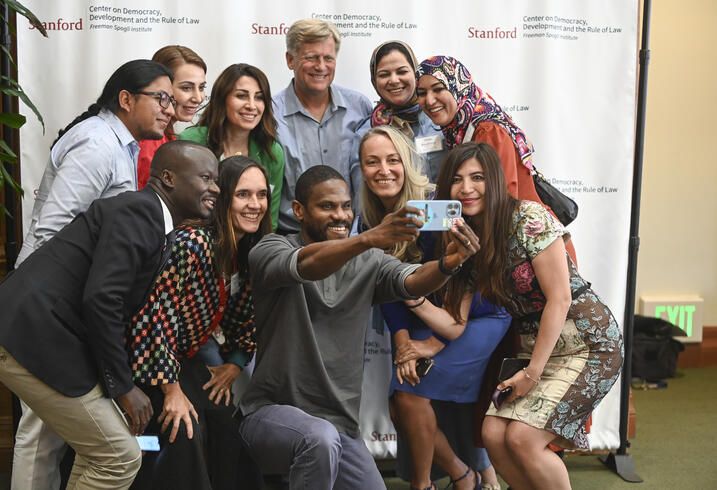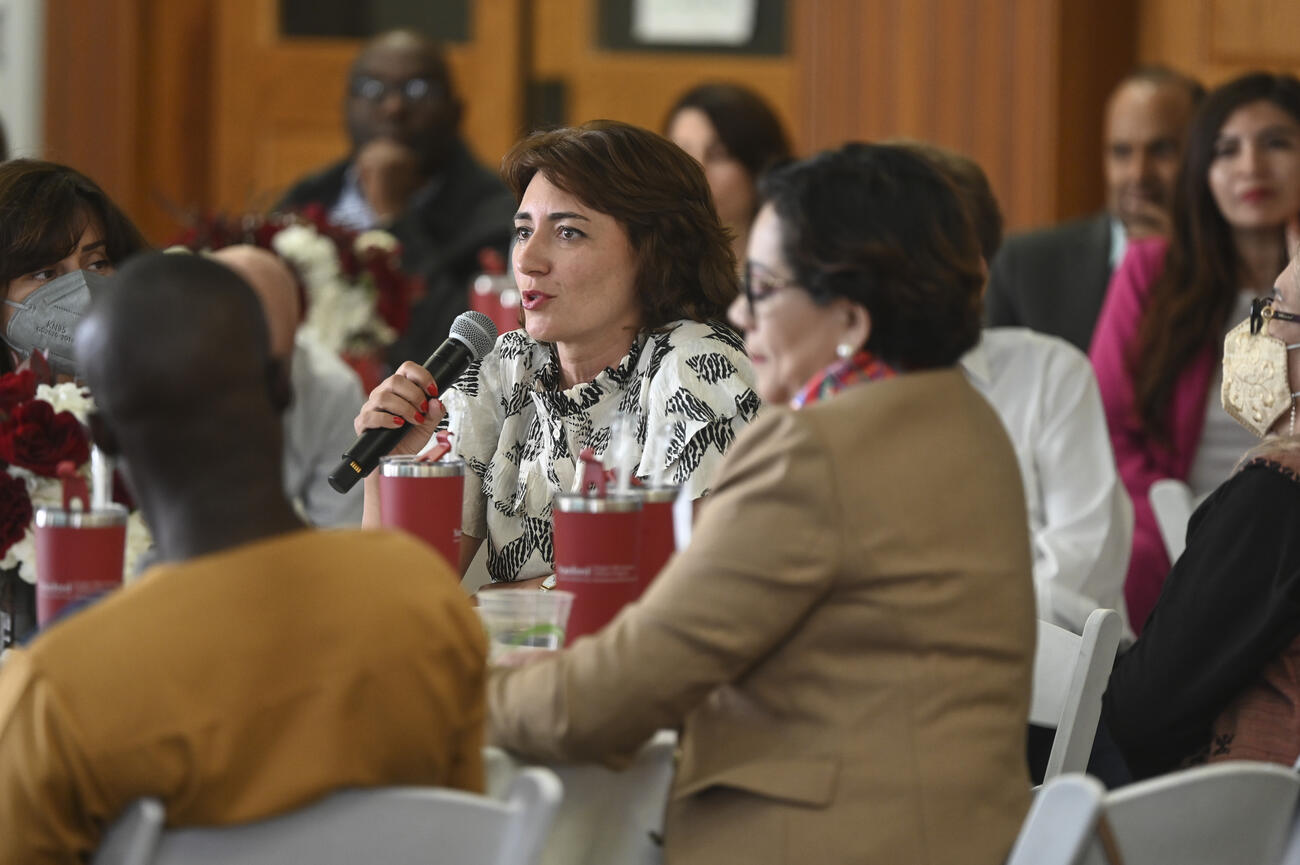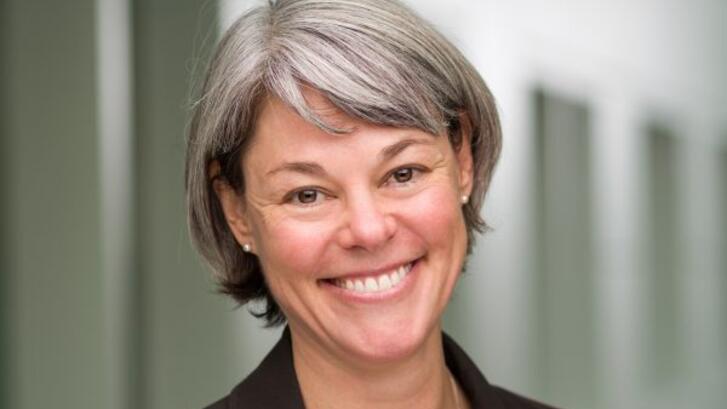China Chats with Stanford Faculty
Friday, December 16, 2022 5 - 6 PM Pacific Time
Saturday, December 17, 2022 9 - 10 AM Beijing Time
From Picking Stones in Sand to Inventing Skin-like Electronics that will Change the Future of Electronics
A Conversation with Professor Zhenan Bao
What’s the secret to innovation? How do scientific findings transfer to the real world? Professor Zhenan Bao, K.K. Lee Professor of Chemical Engineering at Stanford University and former department chair of Chemical Engineering at Stanford University, sits down with Scott Rozelle, the Helen F. Farnsworth Senior Fellow and the co-director of Stanford Center on China's Economy and Institutions, to answer these questions and more. Born in China, Professor Bao moved to the U.S. during college and rose to become a leading scientist and professor of chemical engineering whose work pushes the boundaries of what’s possible in fundamental science. During the conversation, she will share how she became who she is today, her thoughts on Stanford’s culture of innovation, and her passion for mentoring the next generation of innovators.
About the Speakers
Zhenan Bao is K.K. Lee Professor of Chemical Engineering, and by courtesy, a Professor of Chemistry and a Professor of Material Science and Engineering at Stanford University. Bao founded the Stanford Wearable Electronics Initiate (eWEAR) in 2016 and serves as the faculty director.
Prior to joining Stanford in 2004, she was a Distinguished Member of Technical Staff in Bell Labs, Lucent Technologies from 1995-2004. She received her Ph.D in Chemistry from the University of Chicago in 1995. She has over 700 refereed publications and over 100 US patents with a Google Scholar H-Index 190.
Bao has received notable recognition for her work in chemical engineering. Most recently, she was the inaugural recipient of the VinFuture Prize Female Innovator 2021, the ACS Chemistry of Materials Award 2022, MRS Mid-Career Award in 2021, AICHE Alpha Chi Sigma Award 2021, ACS Central Science Disruptor and Innovator Prize in 2020, and the Gibbs Medal by the Chicago session of ACS in 2020.
Bao is a co-founder and on the Board of Directors for C3 Nano and PyrAmes, both are silicon-valley venture funded start-ups. She serves as an advising Partner for Fusion Venture Capital.
Scott Rozelle is the Helen F. Farnsworth Senior Fellow and the co-director of Stanford Center on China's Economy and Institutions in the Freeman Spogli Institute for International Studies and Stanford Institute for Economic Policy Research at Stanford University. For the past 30 years, he has worked on the economics of poverty reduction. Currently, his work on poverty has its full focus on human capital, including issues of rural health, nutrition and education. For the past 20 year, Rozelle has been the chair of the International Advisory Board of the Center for Chinese Agricultural Policy, Chinese Academy of Sciences (CAS). Most recently, Rozelle's research focuses on the economics of poverty and inequality, with an emphasis on rural education, health and nutrition in China. In recognition of this work, Dr. Rozelle has received numerous honors and awards. Among them, he became a Yangtse Scholar (Changjiang Xuezhe) in Renmin University of China in 2008. In 2008 he also was awarded the Friendship Award by Premiere Wen Jiabao, the highest honor that can be bestowed on a foreigner.
Watch the Recording

